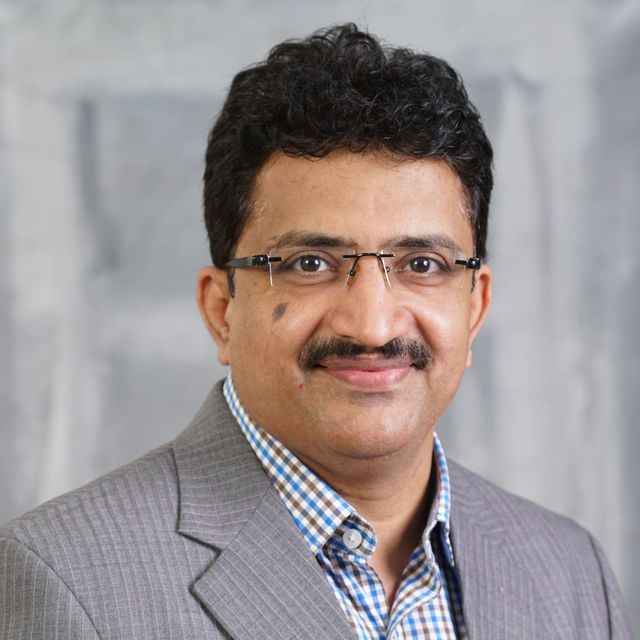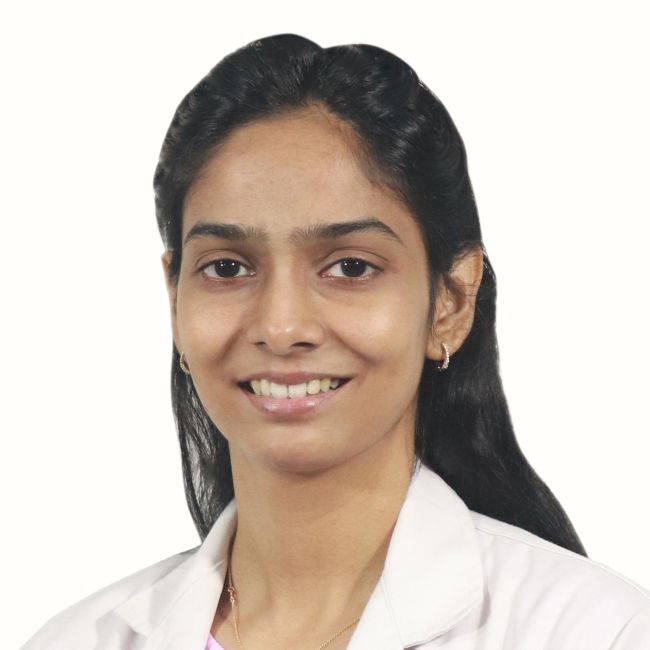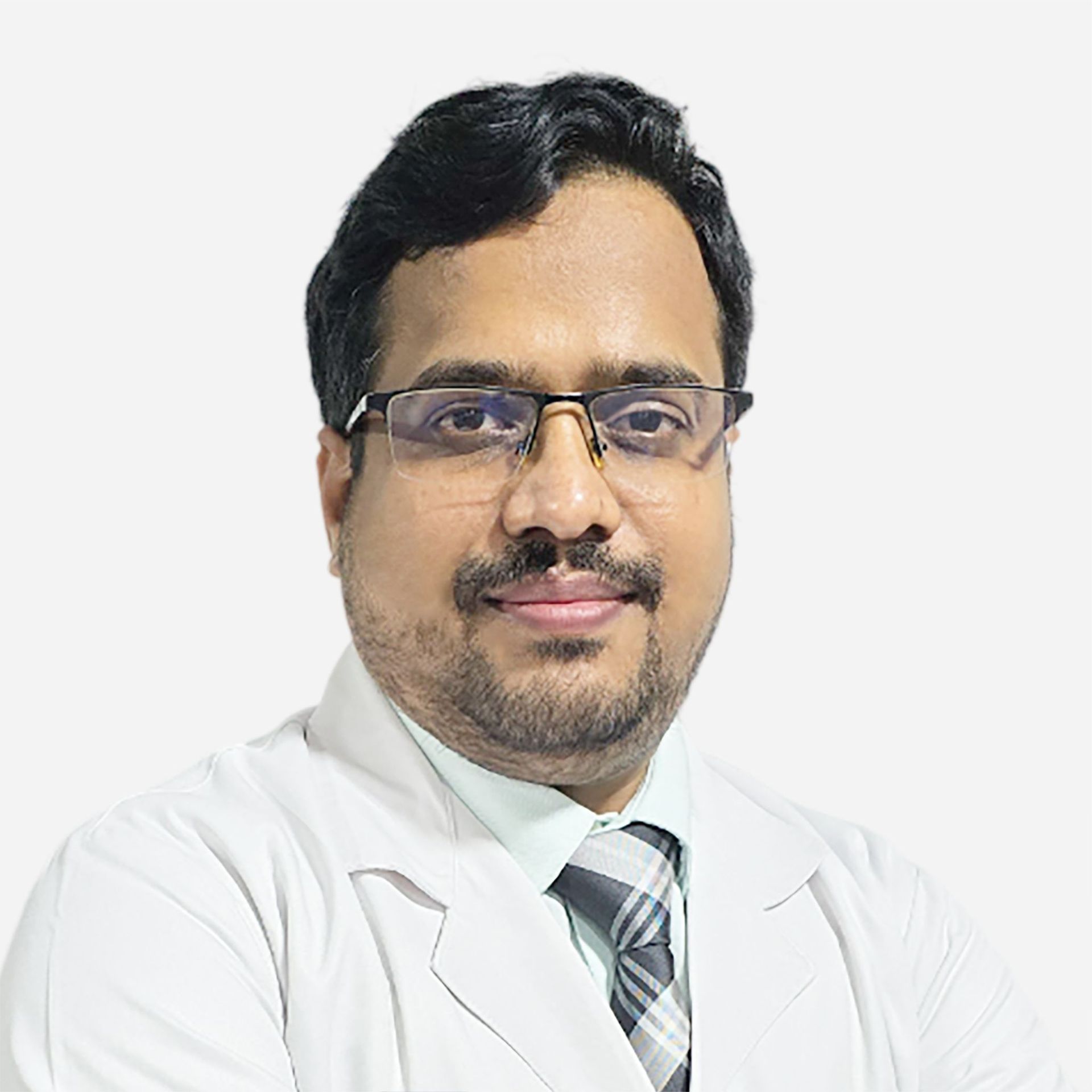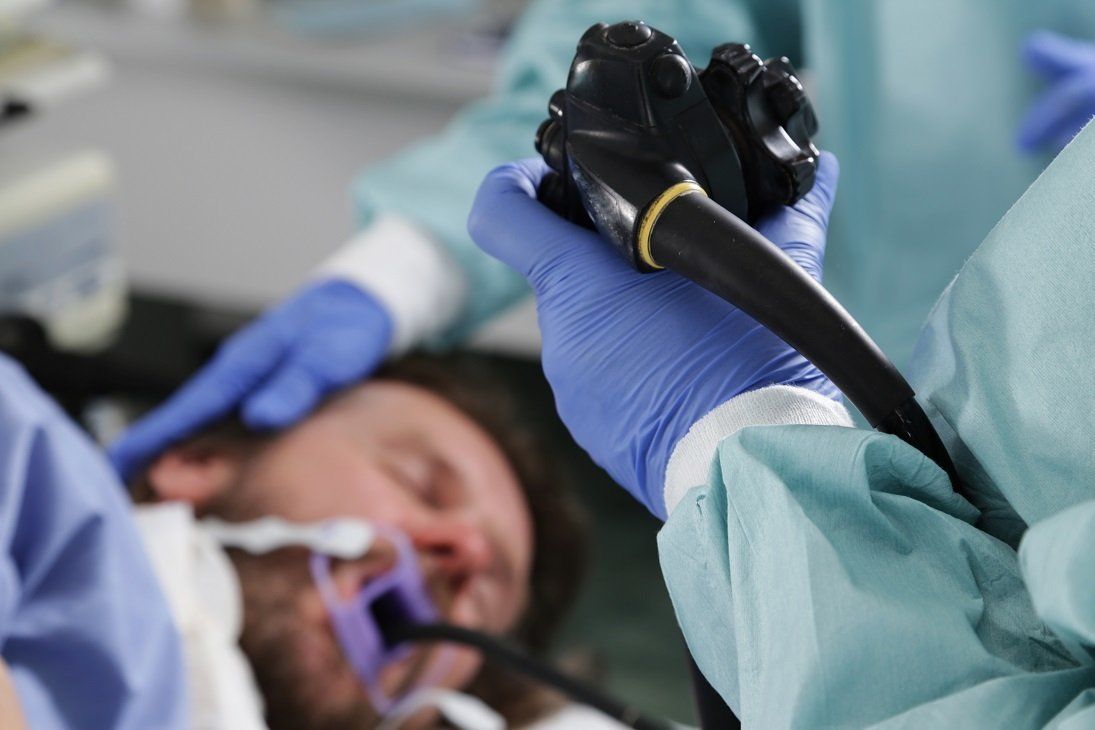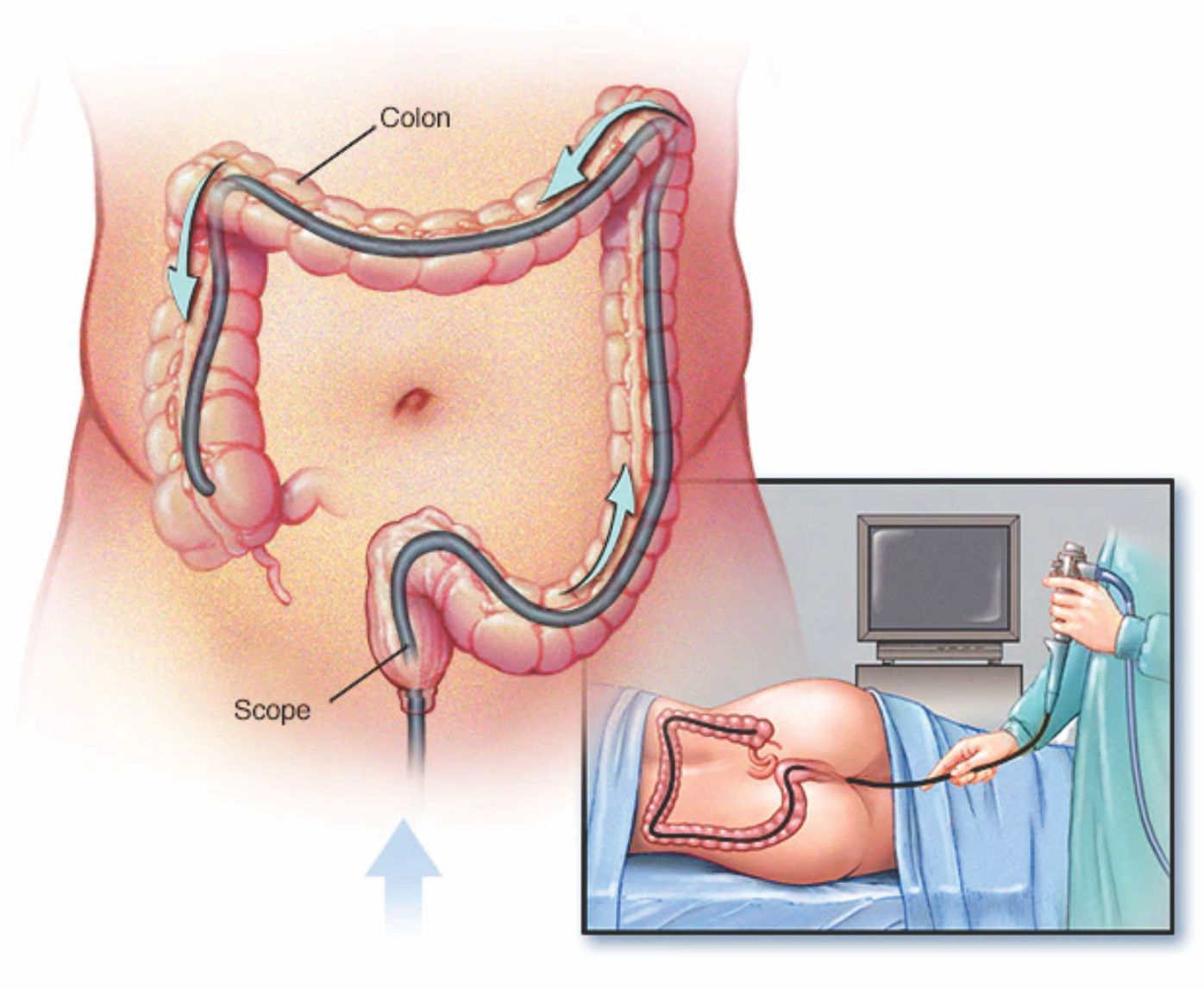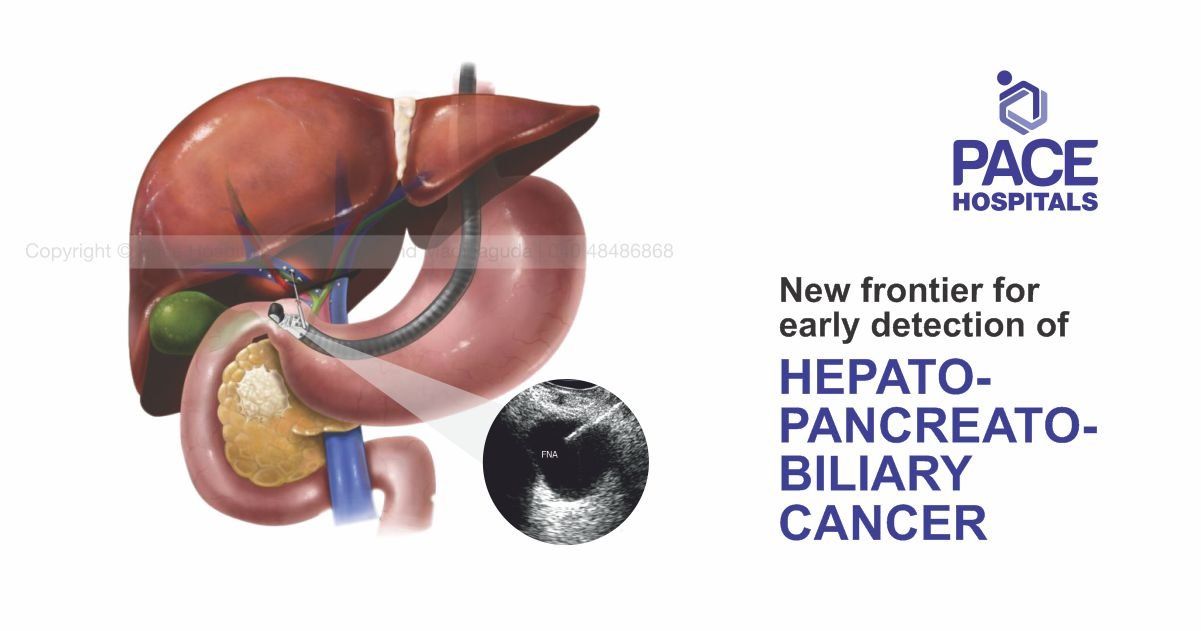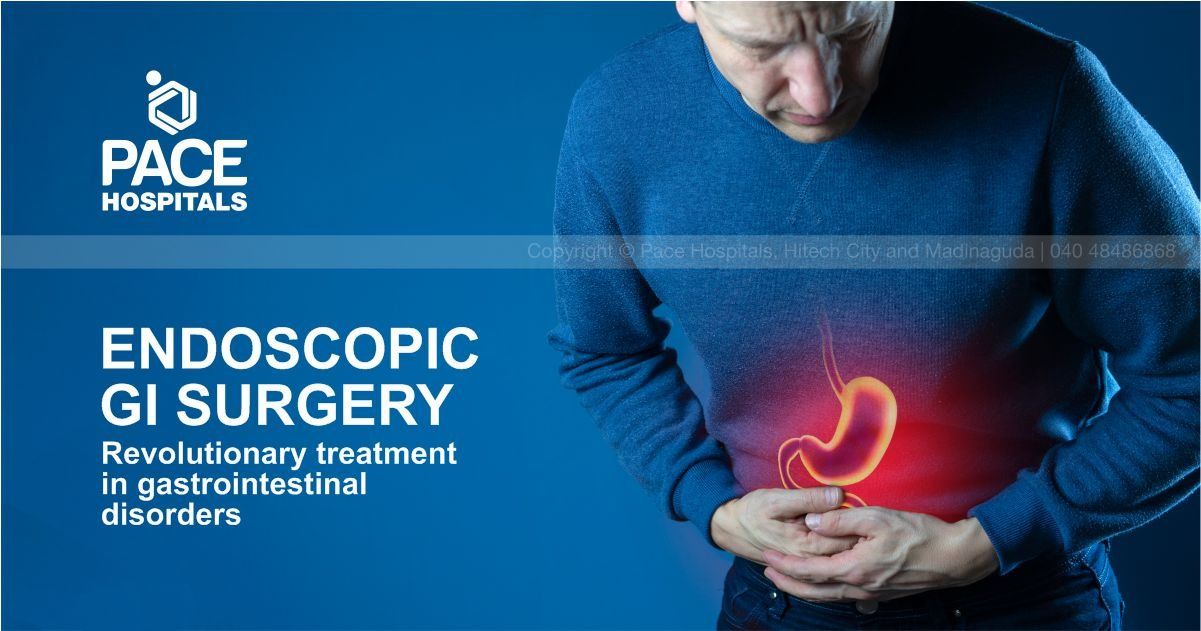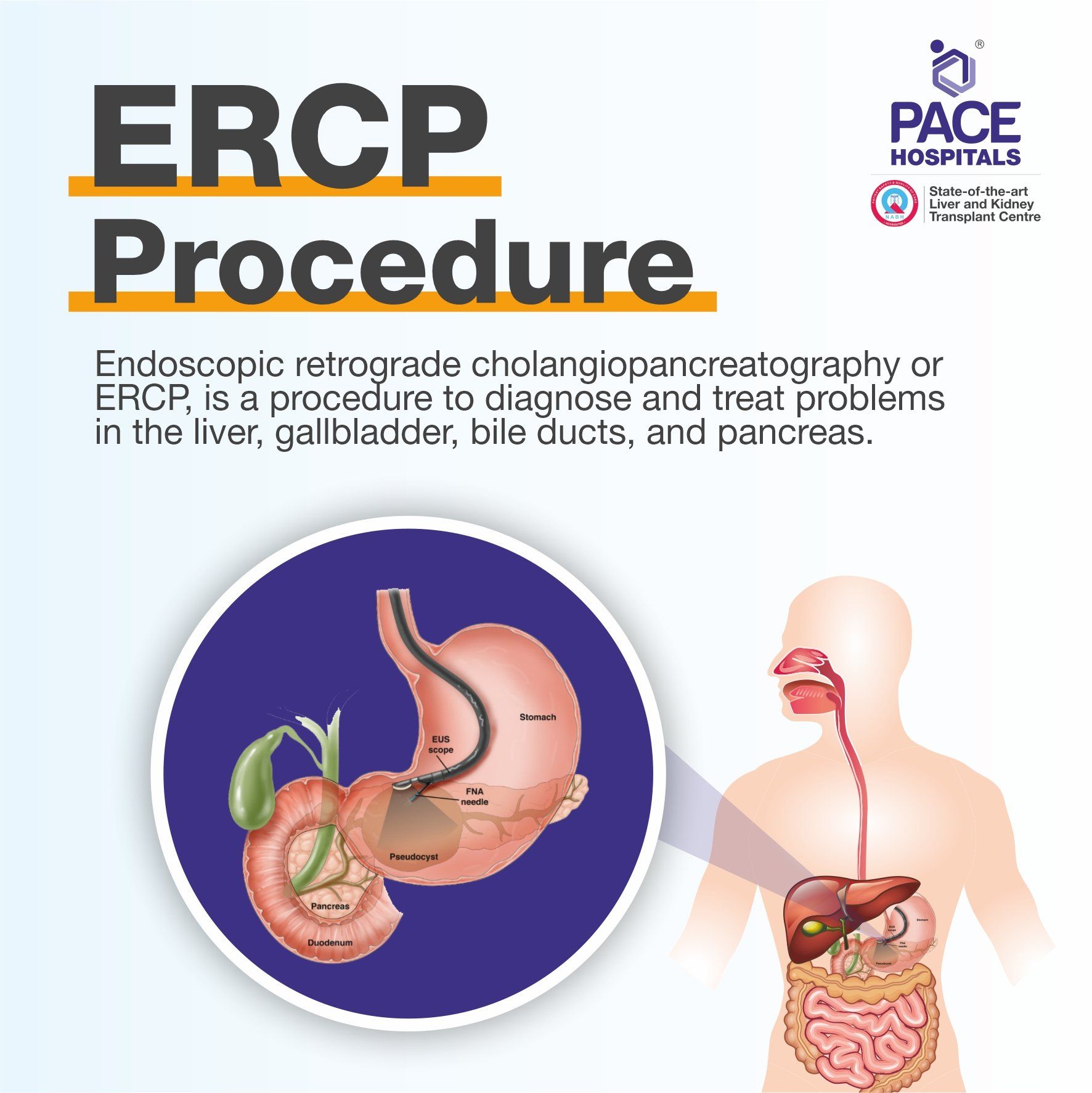Best Gastroenterology and Liver Hospital in Hyderabad
"Award-winning team of Medical and Surgical Gastroenterology Doctors in Hyderabad, offering treatment for the most challenging and complex medical and surgical cases that may be benign or malignant conditions of the stomach, liver, pancreas, gallbladder and bile ducts."
Successfully Treating:
- Liver, Pancreatic diseases and cancers
- Inflammatory Bowel Disease
- Hepatitis B and Hepatitis C
- GERD and Colon cancer
- Gall bladder stone
- Pancreatitis
Book an appointment
Gastroenterology Appointment Enquiry
Why Choose PACE Hospitals for Gastroenterology Treatments?
Comprehensive Gastroenterology Care
Providing treatment to a wide range of gastroenterological diseases & disorders.
State-of-the-art Infrastructure & Facilities
To provide the cutting-edge treatment and diagnostic capabilities.
Experienced Doctors & Skilled Medical Staff
Bringing a wealth of experience, exceptional skills and unmatched expertise.
3,28,338
99,825
684
2011
The Department of Gastroenterology and HPB Surgery

PACE Hospitals is widely recognized as one of the Best Gastroenterology Hospital in Hyderabad, India. With a team of highly skilled and experienced medical & surgical gastroenterology doctors, hepatology doctors, PACE Hospitals offers comprehensive diagnostic and treatment services for a wide range of diseases and disorders related to the digestive system. The hospital is equipped with modern facilities and state-of-the-art technology, such as high-definition endoscopes and imaging systems, third space endoscopic suite, 3D HD laser and laparoscopic system, surgical robotic system, ensuring accurate diagnosis and effective treatment for patients.
PACE Hospitals is committed to providing the highest level of care to its patients. The hospital's patient-centered approach, combined with its expertise in gastroenterology, makes it the best choice for those seeking specialized digestive health services in India. With a focus on innovation, research, and continuous learning, Hospitals' dedication to improving patient outcomes and advancing the field of gastroenterology, makes PACE Hospitals one of the Top 10 Gastroenterology Hospitals in Hyderabad, Telangana, India. Whether it's a routine check-up or a complex surgical procedure, patients can trust PACE Hospitals for their digestive health needs.
Need Help?
Bloating, heartburn or simply difficulty in digestion. Many people regularly suffer from these ailments. Whether it is temporary or persistent digestive symptoms, a consultation with a gastroenterologist / gastro specialists is sometimes necessary.
Our Team of Gastroenterology and Hepatology (Liver Specialist) Doctors
Dr. Govind Verma
Interventional Gastroenterologist, Transplant Hepatologist, Pancreatologist & Endosonologist
What we treat?
We offer a treatment for wide range of Gastro and Liver disorders.
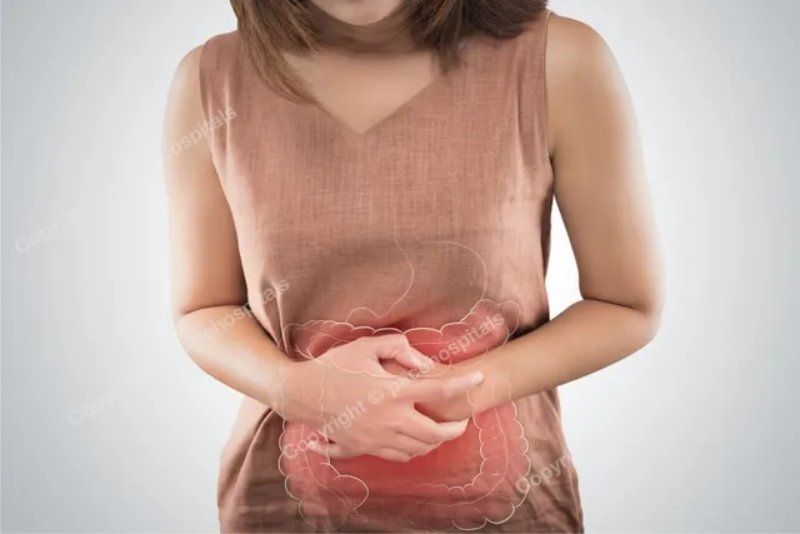
Testimonial: Patient from Asansol suffering with CBD Stone and Gallstone. Successfully removed 250 stones through endoscopic sphincterotomy, ERCP and Laparoscopic Cholecystectomy performed by team of GI surgeon.
Patient Education Information
Procedures Performed
We perform a wide range of procedures to treat wide variety of Gastro and Liver disorders.
Medical Gastroenterology
Procedures performed:
- Video Upper Endoscopy & Colonoscopy
- Capsule Endoscopy & Colonoscopy
- Flexible Sigmoidoscopy
- ERCP (Endoscopic Retrograde Cholangiopancreaticography)
- Therapeutic EUS (Endoscopic Ultrasound)
- 24 hr pH Metry
- Hydrogen Breath Test
- Diagnostic and Therapeutic Endosonography
- Metallic Stenting Oesophageal
- Oesophageal and Rectal Manometry
- Endoscopic Pancreatic stenting
- Endoscopic Pancreatic pseudocyst drainage
- Peroral Endoscopic Myotomy (POEM)
- Endoscopic Submucosal Dissection (ESD)
- Management of acute upper and lower GI hemorrhages
- Removal of polyps from large intestine
- Stent placement in food pipe, colon, small intestine, bile duct and pancreatic duct
- Diagnostic & Therapeutic ERCP – Management of bile duct & pancreatic duct stone
Surgical Gastroenterology
Procedures Performed:
- Management of Cholangio Carcinoma.
- Surgical management of necrotising and Chronic Pancreatitis.
- Surgical management of Ulcerative Colitis.
- Colo Rectal, Esophageal & Gastric Cancer Surgery.
- Management of Liver trauma.
- Advanced Laser and Laparoscopic Procedures
- Lap Cholesystectomy & Lap Appendicectomy
- Lap Hepatectomy, Choledochal Cyst Excision & CBD Exploration
- Lap Spleenectomy, Cystogastrostomy for Pseudocyst of Pancreas
- Lap Cardiomyotomy, Esophagectomy
- Lap Hernia for Inguinal, Spigelian and Incisional Hernia
- Lap Bariatric Surgery
- Lap Small Bowel & Colonic
- Resertions & APResection, Lap Distal Pancreatectomy & LPJ
- Lap Rectopexy
- Lap Nissen Fundoplication for Hiatal Hernia
- VAAFT (Video Assisted Anal Fistula Treatment)
- MIPH (Stapler Haemorrhoidectomy)
Why choose PACE Hospitals?
- A Multi-Super Speciality Hospital.
- NABH, NABL, NBE & NABH - Nursing Excellence accreditation.
- State-of-the-art Liver and Kidney transplant centre.
- Empanelled with all TPAs for smooth cashless benefits.
- Centralized HIMS (Hospital Information System).
- Computerized health records available via website.
- Minimum waiting time for Inpatient and Outpatient.
- Round-the-clock guidance from highly qualified super specialist doctors, surgeons and physicians.
- Standardization of ethical medical care.
- 24X7 Outpatient & Inpatient Pharmacy Services.
- State-of-the-art operation theaters.
- Intensive Care Units (Surgical and Medical) with ISO-9001 accreditation.

